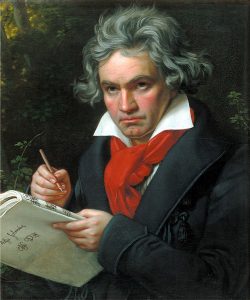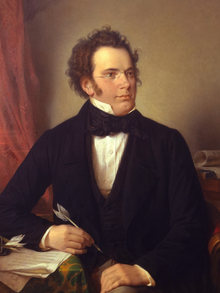Classical piano music has captivated audiences for centuries with its beauty, elegance, complexity, and emotional depth. Within this genre, several composers have left an indelible mark on the world of music. I would like to invite you to join me in this musical journey through time as we explore some of the greatest classical piano composers.

Ludwig van Beethoven (1770-1827):
Beethoven, a towering figure in classical music, expanded the boundaries of piano composition during the transition from the Classical to the Romantic era. His piano sonatas, such as the Moonlight Sonata and the Pathétique Sonata, exhibit a dramatic range of emotions and technical brilliance. The Fifth Piano Concerto, commonly known as the Emperor Concerto, showcases Beethoven’s mastery in blending grandeur and delicate beauty.

Wolfgang Amadeus Mozart (1756-1791):
Mozart’s prodigious talent emerged at a remarkably young age, and he composed over 800 works in his brief life. His piano compositions display exceptional craftsmanship and unparalleled elegance. The “ Non piu andrai, The Marriage of Figaro”, “Eine Kleine Nachtmusik – Serenade No. 13” and the dazzling” Rondo alla Turca – Sonata No. 11” are prime examples of his artistry. Mozart’s concertos, including the Piano Concerto No. 21 in C Major and the Piano Concerto No. 23 in A Major, reveal his genius for blending solo piano virtuosity with orchestral brilliance.

Frédéric Chopin (1810-1849):
Chopin, known as the “poet of the piano,” was a Polish composer and virtuoso pianist of the Romantic period who composed primarily for the piano. His works are renowned for their lyrical melodies, delicate ornamentation, and expressive nuances. His Nocturnes, such as the Nocturne in E-flat major and the Nocturne in C-sharp minor, evoke a sense of melancholy and introspection. The virtuosic Ballades, the revolutionary Études, and the poetic Preludes are some of his most celebrated compositions.

Johann Sebastian Bach (1685-1750):
Bach’s contributions to classical piano music are immeasurable. Though primarily known as a composer for the organ, his keyboard compositions, such as The Well-Tempered Clavier and the Goldberg Variations, showcase his extraordinary technical prowess and profound musical depth. Noted organ works include the Schubler Chorales and the Toccata and Fugue in D minor. Since the 19th-century Bach revival he has been generally regarded as one of the greatest composers in the history of Western music. The German composer’s intricate counterpoint, harmonies, and inventive musical structures continue to inspire pianists to this day.

Franz Schubert (1797-1828):
Schubert’s piano compositions are characterized by their lyrical beauty and poignant introspection. His impromptus, such as the Impromptu in G-flat major, and his monumental piano sonatas, like the Sonata in B-flat major, demonstrate his gift for melody and his ability to convey profound emotional landscapes. His major works include “Erlkönig” (D. 328), the Piano Quintet in A major, D. 667 (Trout Quintet), the Symphony No. 8 in B minor, D. 759 (Unfinished Symphony), the “Great” Symphony No. 9 in C major, D. 944, the String Quintet (D. 956), the three last piano sonatas (D. 958–960), the opera Fierrabras (D. 796), the incidental music to the play Rosamunde (D. 797), and the song cycles Die schöne Müllerin (D. 795) and Winterreise (D. 911).
The works of Beethoven, Mozart, Chopin, Bach, and Schubert continue to captivate audiences and challenge pianists with their technical demands and expressive depth. The contributions of these master composers have shaped the world of classical piano music. Of course, there are a lot more masters that I have not listed in this article like Liszt, Debussy, Rachmaninoff, etc. I urge everyone to exploring not only the 5 listed masters but other compositions to appreciate the transformative power of music and the timeless beauty of classical piano.